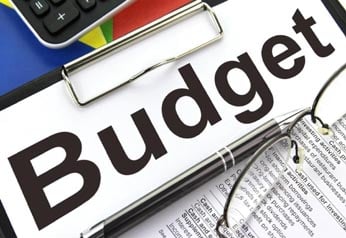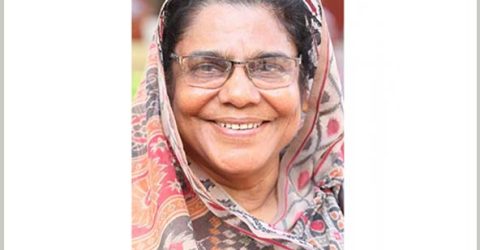Principles of budget should be to simplify people’s lives through taming inflation: economists
The Bangladesh The Bangladesh
Today

Three renowned economists of the country have prioritized taming inflation, strengthening the social safety nets and maintaining economic recovery from the COVID-19 pandemic as the main principles for delivering the national budget for the next fiscal year (FY24).
They said that the issue of strengthening social safety nets demands higher priority for maintaining smooth livelihood of the commoners at a time when the global economy is finding it hard to continue economic recovery from the shocks of the pandemic and the onslaught of the Russia-Ukraine war.
Former Bangladesh Bank Governor Dr Atiur Rahman, distinguished fellow of the civil society think tank, Centre for Policy Dialogue (CPD), Dr Mustafizur Rahman and Bangladesh Economic Association (BEA) general secretary Dr Ainul Islam shed lights on the upcoming budget for the next fiscal year while talking to BSS.
Finance Minister AHM Mustafa Kamal is set to place the budget for fiscal year 2023-24 (FY24), the last one of the current Awami League government at the Jatiya Sangsad on June 1.
Talking to BSS, country’s eminent economist and former central bank governor Dr Atiur Rahman said that the country was passing through a tough time when the national budget for two fiscal years were placed in parliament as policies and strategies relating to smooth economic recovery from the pandemic was the centre of concentration during that time.
Then the policymakers had to consider the shocks of the Russia-Ukraine war while framing the budget for the last fiscal year (FY23), Dr Atiur said, adding that in continuation of this, the government would also have to keep in mind while framing the next budget the strategy for facing the macroeconomic challenges, including the impacts of global unprecedented inflation created because of the war.
Noting that facing the challenges of taming inflation would be the reason of “headache” for the government, he said, “The issue of strengthening social safety nets demands due priority for ensuring smooth livelihood and movement of the commoners,”
Dr Atiur went on saying, “The ensuing budget should have to be delivered very cautiously, otherwise, the government will have to find out a new path,”
Citing that the next budget would be the last budget ahead of the next general election side by side there are also some additional pressures on fulfilling some suggestions of the IMF, he said this upcoming budget bears a unique significance as a ‘national psychological document’ for facing the emerging challenges like mobilizing additional revenues in the wake of rising prices of commodities and services.
For doing this, there is no alternative for exploring additional sources of taxes and for squeezing the facility of tax exemptions in some sectors, he noted.
Making some recommendations for the next budget, the economist said that firstly the government should have to make massive reforms in the tax structure especially modernization of resource tax. The income tax rate should be increased for the rich people while the minimum tax ceiling should be enhanced, he added.
Secondly, he said that the scope for income opportunities for the people of the low-income group should be increased so that they could easily get access to the local and foreign labour market for which time befitting training programmes should continue.
Thirdly, Dr Atiur noted that for creating a long-term base for balanced development, there is a need for imposing carbon tax for green development and introducing solar irrigation business system.
In his 4th recommendation, he proposed for raising investments in the education and health sectors to reduce further the rate of poverty alongside lowering income inequality in the society.
The eminent economist also underscored the need for reaching the support to the real people through proper targeting side by side not leaning to the path of controlling price of commodities and providing subsidies to give relief to the common people from the inflationary pressure.
He put importance on undertaking special social safety net programmes and development projects to make smooth the livelihood of the char people, people living in the disaster-prone areas, and also considering the poverty pockets.
Distinguished fellow of the Centre for Policy Dialogue (CPD) Prof Dr Mustafizur Rahman termed reining in inflation as the biggest challenge for the next budget coupled with restoring economic stability during the post-pandemic period.
“Currently high inflation and mobilization of resources have emerged as challenges side by side there is also pressure on the foreign currency reserve. The imports are being hampered due to the lowering trend of inflation for which there are dissimilarities between demand and supply. The IMF has also given some conditions. The budget for the next fiscal year should be framed keeping ahead these challenges,” he added.
Dr Mustafizur mentioned that the size of the budget for the next fiscal year would be around 15 to 16 percent of GDP of which mobilization of resources would reach 9 to 9.5 percent. If a budget deficit of around 6 percent is added to this, then the overall budget size would not exceed 15.5 percent, he added.
The eminent economist also recommended for raising investment for those poor who have gone below the poverty line due to the pandemic, reducing the social disparity, prioritizing programmes to cushion the low-income group people, raising the number of family card holders to 1.5 crore for availing government support, introducing ration system alongside the OMS operations to give support to the urban poor.
Besides, Dr Mustafizur also laid emphasis on raising the direct tax alongside widening the tax net, increasing the number of new taxpayers through digitalization, strengthening further the National Board of Revenue (NBR) through investing in its technological department, increasing manpower, and enhancing the skills.
“The budget should keep the provision for checking tax evasion. Besides, special attention should be given on continuing various reform initiatives like on the income tax and customs act,” he said, adding that the government should maintain utmost caution before undertaking any development project. Priority in expenditure now should be on education, health and social safety nets instead of infrastructures, he said.
Prof Mustafizur said that while making deficit financing, the government would have to ensure that the private sector investment would not be deterred. Besides, the government should focus more on taking foreign loans instead of taking loans from the banking sector.
Suggesting for reorganizing the subsidy policy in the budget, he said that the government should not compromise towards food security while it could go tough on those ministries and divisions which are eating up most of the subsidies due to their inefficiencies.
General Secretary of the Bangladesh Economic Association (BEA) Prof Dr Ainul Islam said that giving relief to the common people through taming inflation should be the main policy of the government while framing the next budget.
“The present government has pledged to build ‘Smart Bangladesh’. So, we’ll have to frame the budget going beyond the traditional practice, which will be suitable for building ‘Smart Bangladesh,” he said.
He also suggested for widening the coverage of the social safety net programmes, providing direct cash support to the marginal people, taking special initiatives for boosting farm production.
Dr Ainul also proposed for giving duty exemptions on essential items if there is necessity side by side increasing food support through family cards.




